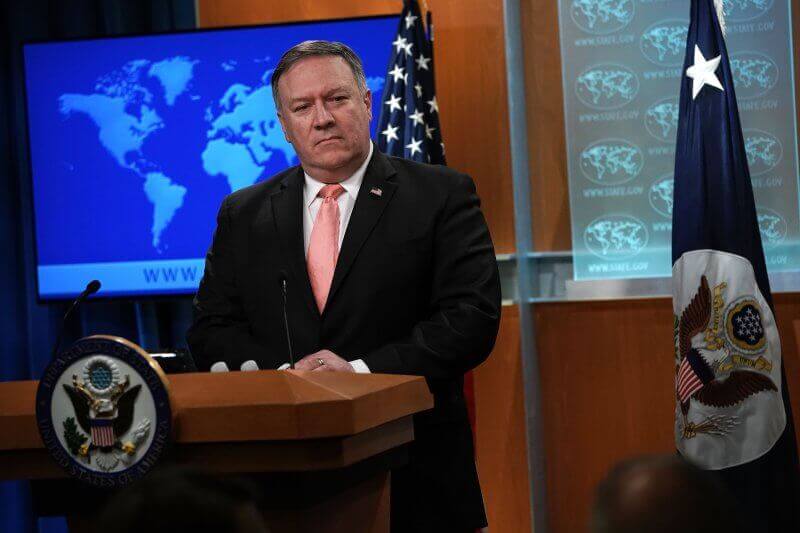On Wednesday, the United States (US) Department of the Treasury announced fresh terrorism-related sanctions against Hasan Irlu, the Iranian Al-Mustafa International University, and Yusuf Ali Muraj for providing support to Yemen’s Houthi rebels. Irlu is an official within the Islamic Revolutionary Guard Corps-Quds Force (IGRC-QF) and also Iran’s ambassador to Yemen, while Muraj is a Pakistani national living in Iran.
The agency labelled Irlu’s recent appointment in Yemen as an Iranian ploy to increase its support to the Houthis, arguing that this would eventually make it harder to resolve the five-year war in the second-largest Arab Gulf state.
The department also imposed restrictive measures on the Al-Mustafa International University, which it said uses its branches around the world as a Quds Force recruitment platform for intelligence collection and operations. Meanwhile, Pakistani national Muraj was blacklisted for supporting Quds Force’s efforts to carry out operations in the Middle East and the US. The sanctions were imposed under the terms of US Executive Order 13224, which allows Washington to block the assets of foreign individuals and entities that commit, or pose a significant risk of committing, acts of terrorism.
“Iran’s support for the Houthis fuels the conflict in Yemen and exacerbates the country's instability,” US Secretary of State Mike Pompeo tweeted. “By dispatching Irlu to Yemen, the (Quds Force) is signalling its intent to increase support to the Houthis and further complicate international efforts to reach a negotiated settlement to the conflict” he added.
Today, the U.S. is designating Hasan Irlu, an Islamic Revolutionary Guard Corps– Qods Force officer, and an individual and a university supporting IRGC-QF recruitment operations. Iran’s support for the Houthis fuels the conflict in Yemen and exacerbates the country’s instability.
— Secretary Pompeo (@SecPompeo) December 8, 2020
The Houthi movement champions the cause of Yemen’s Zaidi Shia Muslim minority and seeks greater autonomy for Houthi-majority regions of the country, and further claims to support a move towards a democratic, non-sectarian republic. The political instability due to President Abdrabbuh Mansour Hadi’s mismanagement paved the way for Shiite Houthi rebels to take control over Yemen’s northern regions. Disillusioned with the transition, many ordinary Yemenis— including Sunnis—supported the Houthis, and in late 2014 and early 2015, the rebels gradually took over the capital Sanaa.
As a consequence, in order to restore order and security, Saudi Arabia and its allies intervened in Yemen and launched an aerial campaign against the Houthi rebels. The US and Saudi Arabia see the Yemeni group as an extension of Iranian influence in the region. Until 2018, Iran denied providing any military support for the Houthis; however, in 2019, Iranian Chief of Staff, Major General Mohammed Bagheri, admitted to providing “advisory and intellectual support” to the rebel group.
The United Nations (UN) has been trying to revive peace talks since late 2018 to end a war that has been in a military deadlock for years. Only last month, Special Envoy Martin Griffiths negotiated a massive prisoner swap between the warring sides. Though the parties signed the Stockholm agreement in 2018 to cease hostilities and open humanitarian aid corridors, the lack of political will and institutional capacity to effectively implement plans has led to the systemic collapse of the Yemeni economy and state infrastructure, resulting in a dangerous cycle of unending violence and political upheaval. A key part of the Stockholm deal was the exchange of a total of 15,000 detainees between both sides. The process has been slow and only partially implemented. However, the new sanctions imposed by Washington only make the situation more complicated.
Unfortunately, the latest sanctions by the US only go to show that Yemen is just a proxy battle of the US and Saudi Arabia (and its allies, such as Canada and the United Kingdom) against Iran. In fact, Iran has already retaliated by blacklisting the US’ Ambassador to Yemen, Christopher Henzel.

